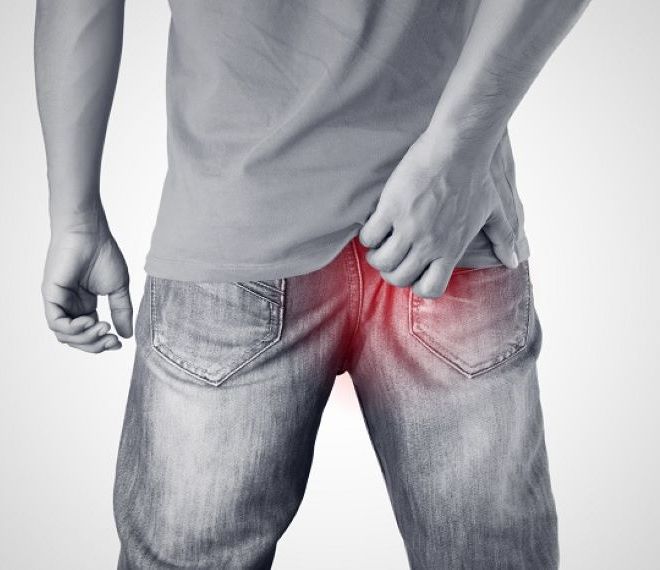The hemorrhoids no one likes to talk about

What are its symptoms and what are its types?
Depending on their location, we distinguish between two types of golden veins. External golden veins usually cause complaints immediately, are uncomfortable, protrude, and later hurt and may even bleed. They can often become thrombosed after lifting, straining, or coughing, which is associated with severe pain, swelling, and inflammation.
Internal hemorrhoids cause painless bleeding after defecation, which in most cases is noticed due to the blood left on the toilet paper. We divide this type into four categories:
- A moderately enlarged, hemorrhagic hemorrhoid, without eversion, which causes neither significant symptoms nor complaints.
- A lump that turns out when you squeeze or defecate, but spontaneously retracts, which can cause discomfort or even bleeding when you defecate.
- Hemorrhoidal nodules in the third stage are already difficult to retract on their own, they almost always hurt and may bleed.
- Hemorrhoids that are permanently inverted and cannot be put back.
It is important to keep in mind that both internal and external hemorrhoids can present with rectal itching and complaints of cleanliness, emphasizes Dr. Péter Sipos.
When and what kind of doctor should be consulted?
Typically, patients only start dealing with the disease when their symptoms worsen or turn to a specialist. However, in case of persistent pain, the appearance of protrusion and repeated bleeding, especially over the age of 40, a medical examination is definitely recommended.
The general practitioner can also successfully treat incipient hemorrhoid complaints. If the complaints do not improve or stop, it is definitely recommended to consult a proctologist.
What is it made of?
The disease can be triggered and aggravated by any condition involving an increase in intra-abdominal pressure. This can be a big lift, a violent cough, straining due to constipation, but it can also be caused by obesity with an increase in abdominal circumference, water in the abdomen and pregnancy. The enlarged uterus due to pregnancy, increased abdominal pressure and the increased need for fluids can cause hemorrhoid complaints in a third of those affected. The period around childbirth requires the greatest attention.
What can we do about it?
As in almost all cases, prevention is the most effective. We can postpone or even completely prevent the development of the disease with a diet rich in fiber, the intake of the right amount of fluids, regular meals and exercise. If all this is not enough, it is important to consume extra stool-softening fiber materials, such as edible bran, plantain husks or flaxseed flakes. It can be observed that in countries where fiber consumption is higher, people exercise more, and where fewer people do all-day sitting work, hemorrhoids occur less frequently.
If a milder version of the disease has already developed, we can take tablets, apply suppositories, creams, and sometimes pelvic floor exercises and chamomile sitz baths can also help. In the case of an external hemorrhoidal knot, the solution is to remove the blood clot or the hemorrhoid here. For second-degree internal hemorrhoids, the solution is to put on a rubber ring, for third-degree hemorrhoids, the solution is to remove the hemorrhoid with a sewing machine, or ultrasound hemorrhoid ligation, or laser hemorrhoid occlusion. These methods can also be used for fourth-degree hemorrhoids, but at this stage, all of this must be supplemented more often with traditional hemorrhoid removal.
If you would like to make an appointment for our proctology specialist, you can do so via our telephone customer service at +36 1 790 7070 or online!
Get to know our proctologist specialists:
